Zhangjiajie Tours from Malaysia
We offer a wide range of tour packages to Zhangjiajie China from Malaysia to suit most tastes and budgets. Accommodations in reputable hotels, inclusive of airport transfers and meals are available depending on your choice of package.
For Chinese-speaking travelers from Malaysia, we recommend opting for a cost-effective Mandarin-speaking guide.
4-day Zhangjiajie National Forest Park & Tianmen Mountain Tour
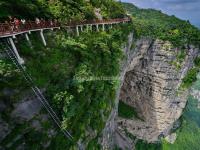
Tour Code: ZTG-Z-02
Enjoy the celestial beauty of Tianmen Mountain National Forest Park and Zhangjiajie National Forest Park. A well-planned package for visitors who love the most famous natural wonders in the world!!
6-day Guangzhou Zhangjiajie Tour by High Speed Train
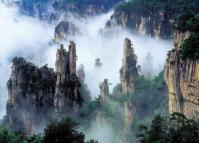
Tour Code: ZTG-L-01
First visit some famous historical sites in Guangzhou, then travel to Zhangjiajie by high speed rail, explore the awesome beautiful Tianmen Mountain, discover Zhangjiajie National Forest Park- the world heritage site and geopark, where you will see the Avatar Hallelujah Mountain, Bailong Elevator, ...
8-day Shanghai Zhangjiajie Fenghuang Tour
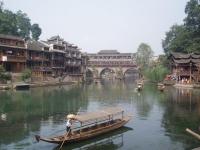
Tour Code: ZTG-L-04
During this tour, you will experience the vibrant atmosphere of Shanghai, visit the magnificent mountains of Zhangjiajie renowned for their stunning karst landscapes that captivate visitors from around the globe, and explore the charming Fenghuang Old Town with its distinctive stilted houses.
7-day Zhangjiajie and Yangtze River Cruise Tour
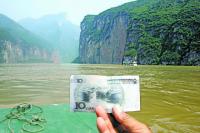
Tour Code: ZTG-L-05
Cruise along with the picturesque Yangtze river and its tributary from Chongqing to Yichang by VICTORIA CRUISES. Encounter magnificent mountain vistas while exploring Zhangjiajie, home to the Tujia ethnic group along with experiencing the world famous Sky Walkway and the Plank Road along the cliff ...
4-day Zhangjiajie National Park Glass Bridge & Tianmen Mountain Tour
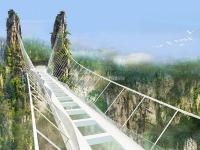
Tour Code: ZTG-Z-06
A challenging Zhangjiajie tour: visit Zhangjiajie National Forest Park and then have a walk on the terrifying glass bridge in Zhangjiajie Grand Canyon and the plank road built along a cliff in Tianmen Mountain.
6-day Fascinating Zhangjiajie & Fenghuang Tour
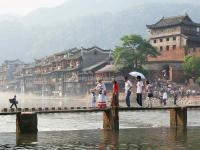
Tour Code: ZTG-Z-09
Be stunned by the natural wonders in Zhangjiajie National Forest Park and the Red Stone Forest National Geopark, be immersed in the beautiful Ancient Town of Fenghuan, which is described in the 1934 novel Border Town by one of the greatest modern Chinese writers, Shen Congwen.
3-day Hidden Wonders of Zhangjiajie
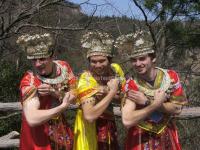
Tour Code: ZTG-Z-10
Embark on an extraordinary journey through Zhangjiajie with our experienced and knowledgeable private tour guides. On this meticulously crafted tour, you will be awe-struck by the illustrious and breathtaking sights that this magical place has to offer. Prepare to be mesmerized!
7-day Enchanting Western Hunan
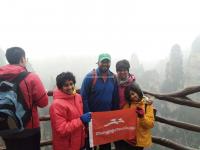
Tour Code: ZTG-H-04
Throughout the millennia, Western Hunan has served as a vibrant melting pot of diverse ethnic groups and cultures, a legacy vividly reflected in its remarkable architecture. From the iconic stilted houses of the Tujia people to the sleek modernity of glass structures, immerse yourself in the capti ...
6-day Stunning Zhangjiajie Furong Fenghuang Fanjingshan
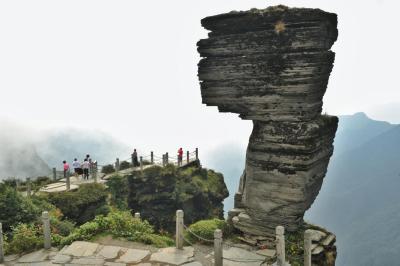
Tour Code: ZTG-H-05
Are you eager to uncover the finest of Hunan and Guizhou in a single, unforgettable journey? Look no further than this 6-day expedition through stunning landscapes and captivating destinations. Explore the picturesque beauty of Zhangjiajie, immerse yourself in the rich ethnic cultures of Furong an ...
When to go
Depending on your vacation time, personal interests and weather preferences, Zhangjiajie can be visited at any time of the year, especially from April to October.. Also, autumn season from October to December is also another recommended time with fewer rainy days and typhoon. Zhangjiajie is also called a "city of spring" due to its comfortable year-round temperatures that hover around 16 ℃.
♦ Visit Zhangjiajie in Spring (March - May)
Spring in Zhangjiajie is a season in rainy period. During the spring time, everything is starting to become green and fresh, comfortable temperature with average of 22 ℃. Not too cold and too hot. Spring is good for you if you do not want to meet the crowds.
♦ Visit Zhangjiajie in Summer (June - August)
Summer in Zhangjiajie is pleasure but also have some high temperature days with 39 ℃ during the mid-summer. Because Zhangjiajie is a mountainous area, fog and heavy rain in July create a few snags for hikers and mountain climbers. During the summer holiday, this area will become crowded so try to avoid the China domestic travel peak time.
►Some tourists prefer to see the scenery after rain. The scene in Zhangjiajie can offer you an impressive image to you.
►Recommended sites after rain to go: Tianmen Mountain, West Sea and other parts of Wulingyuan.
►When climbing up to the mountain, the temperature will be about about 3-5 ℃ lower than the mountain foot areas. It is better to take some thick clothes there.
♦ Visit Zhangjiajie in Autumn (September - Mid November)
Autumn in Zhangjiajie is a golden time for travelers. With fewer misty days and rainy days, the weather will be fine and last for a long time. Be careful of the cold night in autumn season.
♦ Visit Zhangjiajie in Winter (Mid November - February)
Winter in Zhangjiajie is a world of snow as well. The ice engraving for your appreciation in this time, Be careful of the frozen air and heavily cold days, It is a comparative dangerous thing when climbing mountain in a winter day.
Major public holidays can make travel difficult, and sights can be crammed with vacating Chinese. Maneuvering around China with 1.3 billion others at Spring Festival can be daunting, but you also get to see Zhangjiajie at its most colorful and entertaining. Hotel rates become very expensive during the May Day holiday (May 1-5), National Day (October 1-7) and Spring Festival (lasts 7 days in Jan. or Feb.), and train tickets can be difficult to procure.
Flights to Zhangjiajie
The best way to Zhangjiajie for Malaysian travelers is by air via Guangzhou, Shenzhen and Shanghai from Kuala Lumpur. There are plenty of flights between Malaysia and China. The following airlines provide frequent flights to China:
Travelers can also fly to Changsha or Guangzhou from Kuala Lumpur and then change the high speed train to Zhangjiajie.
Packing Tips
Before Packing
·Make a packing list and number them in order of importance.
·Reread you list. Think twice about the "desired or essential" items.
·Try to make the list as short as possible.
·Find related information about your destination and amend your list accordingly.
What to Pack
Travel light! Whenever you travel, remember that quality, not quantity is the order of the day. Hereafter are some useful tips for packing. Please read it carefully as it will surely help you.
Materials:
·Do remember to take you passport, visas, related health certificates, tickets, ID, money, credit card, map, itinerary and other important documents needed during traveling
·Do remember to make a card upon which are your personal details in case of emergency
·Do remember to make copies for your important materials. It is strongly recommended that you additionally store a backup of your information in your email account or other on-line storage.
·Do remember to bring guide and phrase books related your destination.
·Do not pack important items unprotected; put them into a waterproof bag to prevent damage.
·Do not carry too much money all in one place, spread it around your pockets.
·Do not keep your credit card and identification card together.
·Do not take too many reading materials, 1-3 copies is ok.
Clothes:
·Do check the climate of your destination, and then see what kind of clothes you require.
·Do remember to take leisurewear which will keep you relaxed and comfortable.
·Do remember to take clothes that dry easily.
·Do remember to take a waterproof and umbrella.
·Do not take too many formal clothes, one or two is enough.
·Do not bring natural fibred clothing as it is hard to dry and are heavier than synthetics.
·Do not forget to bring sunhat, sunglasses and sun block in summer
·Do not forget to take you toiletries and your personal items such as toothbrush, towel and so on.
·Do not take sturdy clothes
·Do not wear military-styled clothing in case of unnecessary misunderstandings.
Clothing Suggestion:
Season | Month | Temperature℉ | Suggesting Clothing |
Spring | Mar-May | 50 - 71.6 | Western suits, jackets, sports coats, woolen jackets, long sleeve shirts and travel shoes |
Summer | Jun-Aug | Above71.6 | T-shirts, short sleeve shirts, skirts, sandals, caps, rain wear |
Autumn | Sep-Nov | 50- 71.6 | Western suits, jackets, sports coats, light woolen sweaters, rain wear and travel shoes |
Winter | Dec-Feb | Below 50 | Overcoat, thick woolen sweaters, lined coats; In northern China, cap, gloves and cotton-padded shoes are required |
Electronic products:
·Do remember to take a power convert and adapter plugs. China's electrical system operates at 220 volts
·Do remember to take razor, alarm clock, camera and enough film as well as extra batteries
·Do not take too many electrical products which can be bought anywhere or are provided by hotels, hair dryers for example. It will be a burden for you.
First-aid Kit
·Do remember prescribed medications!
·Do remember to prepare some drugs for emergency use, including Aspirin, vitamins, anti-inflammatory, anti-histamines, remedy for diarrhea and antacid.
·Do take along your medical history (Blood Group, Allergies, and Known Medical Conditions) and keep in your first-aid kit. This may be helpful if you need to see a doctor or become incapacitated.
·Do not carry excessive quantities of drugs; you may encounter problems at China Customs.
·Do not bring a pharmacy, just bring the essentials.
Packing tips
·Roll your clothes instead of folding them or use vacuum bags. In this way you will save a lot of space and provide extra protection for your clothing.
·Put the items your will use regularly at the top.
·Bring several plastic bags with you. You will find many uses for them during your trip.
·Remember the rules on carrying liquids; you may have to remove them at your point of departure.
Chinese Visa
Malaysian passport holders will need a visa to travel to and enter China (apart from Hong Kong and Macau for stays up to 90 days). There is no Visa-On-Arrival provision except in extraordinary cases. You should apply to the closest Chinese Visa Application Service Center to your home. Your passport must be valid for six months from your proposed date of entry and contain two blank visa pages when you hand in the visa application. Acquiring the standard one-month tourist visa is not difficult.
Places to apply for a visa:
Address: Consular Office of the Embassy of the People's Republic of China in Malaysia
1st Floor, Plaza OSK, 25 JalanAmpang, 50450 Kuala Lumpur, Malaysia
Email: lingshikl@gmail.com
Office Hours: 9:00a.m.-11:45a.m. from Monday to Friday(except public and Chinese holidays)
Visa Application Center
Tel: 006-03-21758888/7888 Fax: 006-03-21756888
Website: www.visaforchina.org.my
Passport and Travel Document
Tel: 006-03-21645250 Fax: 006-03-21636809
Notarization & Authentication
Tel: 006-03-21645250 Fax: 006-03-21636809
IMPORTANT NOTE:
Starting from Dec. 1, 2023 to Nov. 30, 2024, ordinary passport holders from Malaysia may enter China visa-free for business, tourism, visiting relatives and friends and transit for no more than 30 days.
Important Things
Time Difference
China is eight hours ahead of Greenwich (GMT + 8). Malaysia Time Standard Time is also 8 hours ahead of Greenwich Mean Time (GMT+8). So China and Malaysia are in the same time zone. When NOT to travel in China
Weather aside, avoid traveling during any of the China's national holidays if at all possible. In the 1990's the Chinese government introduced the "Golden Weeks" to develop domestic tourism industry. The three Chinese national "Golden Weeks" to avoid are:
1.Chinese New Year (Spring Festival): This is the worst time to travel. The exact dates each year varies since it’s based on the Lunar Calendar, but it’s usually around late January to mid-Feb.Technically about 2 weeks but many Chinese will just get the first week off. Chinese New Year is the most important of the traditional holidays, kind of the equivalent of Christmas in the West. A huge chunk of the population — from white collar to migrant worker — takes off work to travel back to their hometowns to spend time with their families. Most businesses shut down completely, so your options for eating and shopping also become severely limited in smaller towns. Of course, if you don't mind the crowds, it can be lots of fun (festivals, street activity, etc).
2. National Day (starts Oct 1): A week-long holiday that celebrates founding of the People’s Republic of China. In particular, avoid some hot sites, such as the Great Wall, the Forbidden City, the Yellow Mountain, Jiuzhaigou Valley, etc.
3. Labor Day (May 1): Until 2007, this was a week-long holiday but has since been scaled back to a long 3-day weekend. So not as crazy as before but still definitely want to avoid being in transit during this time.
Business Hours
Most of China's business world slows down considerably during the spring festival in late January and early February. Business visitors would be wise to avoid this two to three week holiday period.
In most cities in China, businesses and government offices are usually open Monday through Friday and every other Saturday from 8 am to noon and from 1:00 to 2:00 pm to 5:00 or 6:00 pm. China has a five and a half day workweek consisting of 44 hours. Banks are open Monday to Saturday from 8:00 am to 5:00 pm. Shops are open every day.
Money Matters
The renminbi (RMB, sign: ¥; code: CNY; also CN¥, 元 and CN元) is the official currency of China (People's Republic of China). Renminbi is legal tender in mainland China, but not in Hong Kong, Taiwan, or Macau. It is issued by the People's Bank of China, the monetary authority of China. It literally means "people's currency".
The primary unit of renminbi is the yuan (元). One yuan is subdivided into 10 jiao (角), which in turn is subdivided into 10 fen (分). Renminbi banknotes are available in denominations from 1 jiao to 100 yuan (¥0.1–100) and coins have denominations from 1 fen to 1 yuan (¥0.01–1). Thus, some denominations exist in coins and banknotes. Coins under ¥0.1 are used infrequently.
For RMB (CNY) and GBP exchange rate, please visit The Currency Converter.
Credit Cards
Currently there are seven main foreign credit cards available in China, including Visa, MasterCard, American Express, Diners Club, JCB, Federal and Million. Credit cards can be used for withdrawing money, shopping and other transactions in most major cities of the country, but generally not accepted in rural areas.
ATM
In China, most of the local ATMs machines accept Visa and Master. CITIBANK card and HSBC are also very popular in China because Citibank and HSBC have agreement with UnionPay. For other cards, you may check the ATMs you are going to use and see if they have the logos and signs for your credit cards.
ElectricityBasically there are two main standards for voltage and frequency in the world. One is the standard of 120 volts at a frequency of 60 Hz, and the other is the standard of 220–240 volts at 50 Hz. China uses generally 220V, 50HZ, AC (Hong Kong is 200V; Taiwan is 110V).
Electricity in United Kingdom is 230 Volts, alternating at 50 cycles per second. If you travel to China, you will need a voltage converter and a plug adapter.
Communications
1.Internet: Most hotel rooms will offer an internet connection for your laptop. Airports, Starbucks, and a number of coffee restaurants provide free Wi-Fi. If you don't have a laptop, inexpensive internet bars are scattered around the city.
2. Post Offices: Airmail letters to United Kingdom usually take between four days and a week to reach their destinations. Stamps are sold at the post office counters.
3. Telephone
♦ Call a fixed phone
If you are going to call a fixed phone in a particular city in China, please dial the exit number of your home country 0011 + 86 (China's country code) + 10 (i.e. Beijing's city code) + phone number.
♦ Call a cell phone
If you are going to call a mobile phone in a particular city in China, please dial the exit number of your home country 0011 + 86 (China's country code) + Cell phone number.
Conversion
Although a traditional measurement system exists, China now uses the metric system.
1 kilometers = 0.62 mile
1 meter = 1.09 yards
1 centimeter = 0.39 inch
1 kilogram = 2.2 pounds
1 gram = 0.035 ounce
1 liter = 0.76 pint
0℃ = 32 ℉
Meeting Etiquette
·Greetings are formal and the oldest person is always greeted first.
·Handshakes are the most common form of greeting with foreigners.
·Many Chinese will look towards the ground when greeting someone.
·Address the person by an honorific title and their surname. If they want to move to a first-name basis, they will advise you which name to use.
·The Chinese have a terrific sense of humour. They can laugh at themselves most readily if they have a comfortable relationship with the other person. Be ready to laugh at yourself given the proper circumstances.
Dining Etiquette
·The Chinese prefer to entertain in public places rather than in their homes, especially when entertaining foreigners.
·If you are invited to their house, consider it a great honour. If you must turn down such an honour, it is considered polite to explain the conflict in your schedule so that your actions are not taken as a slight.
·Arrive on time.
·Remove your shoes before entering the house.
·Bring a small gift to the hostess.
·Eat well to demonstrate that you are enjoying the food!
Table Manners
·Learn to use chopsticks.
·Wait to be told where to sit. The guest of honour will be given a seat facing the door.
·The host begins eating first.
·You should try everything that is offered to you.
·Never eat the last piece from the serving tray.
·Be observant to other peoples' needs.
·Chopsticks should be returned to the chopstick rest after every few bites and when you drink or stop to speak.
·The host offers the first toast.
·Do not put bones in your bowl. Place them on the table or in a special bowl for that purpose.
·Hold the rice bowl close to your mouth while eating.
·Do not be offended if a Chinese person makes slurping or belching sounds; it merely indicates that they are enjoying their food.
·There are no strict rules about finishing all the food in your bowl.
Tipping in China
Tipping is not widely expected or required in Mainland China. However, at superior hotels and restaurants catering to western tourists, porters, room service and wait staff may have become used to receiving small tips. You can tip in cash, some small gifts brought from your country would also be appreciated, such as music CDs, books, perfumes, candies, etc. While in Hong Kong and Macau, tipping is very common and important, just like many parts of the world.
What To Do in an Emergency in China
Hopefully, you won't have to deal with an emergency while you're in China. However, if you do find yourself in a bad situation, it is important to know what to do.
In China the organization that is responsible for public safety is the Public Security Bureau (PSB). There are usually several PSB locations within a city district. If you feel you are in danger or need to call for help, you can reach the PSB by dialing 110 on any phone in China.
If you lose your passport, you should report the lost passport as soon as possible to your nearest Public Security Bureau and to your embassy or consulate in China. In order to get a new Chinese visa, a Police report about the loss/theft will be required.
Below are some emergency phone numbers that you should make note of:
110 for the police
119 in case of fire or
120 for an ambulance
If you lose your credit cards or travelers checks, call the issuers immediately. There is usually an international number on the backside of your credit card that you can dial collect 24 hours a day from anywhere outside your home country.
♦ The PSB Office in Zhangjiajie
Tel: 0744-8225175
No. 32, Nanzhuang Lu, Yongding District
♦ The PSB Office in Beijing
Tel: 010-84020101
Add: No.02, Andingmen Dong Dajie
Subway: next to the subway station of Yonghegong (Lama Temple)
♦ The PSB Office in Shanghai
Tel: 021-62310110
Add: No. 128, South Wuning Lu (Wu Ning Nan Lu)
♦ The PSB Office in Guangzhou
Tel: 020-83116688
Add: No.200, Qiyi Lu
♦ The PSB Office in Xi'an
Tel: 029-87234500
Add: No.63, West Street (Xi Da Jie)
♦ The PSB Office in Guilin
Tel: 0773-2823334
Add: No.1, Sanduo Lu
Consular Assistance
♦Embassy of Malaysia in Beijing
Name Embassy of Malaysia
Address: No.13, Dong Zhi Men Wai Da Jie, San Li Tun, Beijing
Tel: (+86 10) 65322531
Fax: (+86 10) 65325032
Email: mwbeijing@95777.com
♦Consulate General of Malaysia in Shanghai
Address: Room 1101, CITIC Square, No.1168, Nanjing Road West, Nanjing
Tel: (+86)21 5292 5424
Fax: (+86)21 5292 5951
E-mail: mwshang@public1.sta.net.cn, malshang@kln.gov.my
Office Hours: 08:30 - 17:00 (Mon. - Fri.)
♦Malaysia Consulate in Kunming
Name Malaysia Consulate in Kunming
Address: Room 401-405, Sakura Hotel, No. 29 Dongfeng Dong Road, Kunming 650011
Tel: +86-871-3165888/6241
Fax: +86-871-3113503
♦Consulate General of Malaysia in Guangzhou
Address: Room 1915-18, CITIC Plaza Office Tower,
No. 233 Tianhe Nan Lu (Tianhe Road South), Guangzhou
Postal Code: 510610
Tel: (+86)20 3877 0763 (+86)20 3877 0766
Fax: (+86)20 3877 0769
E-mail: mwgzhou@public.guangzhou.gd.cn
Office Hours: 08:30 - 17:00 (Mon. - Fri.)
Consular Regions: Fujian Province, Guangdong Province,
Hainan Province, Jiangxi Province, Hunan Province
♦Consulate of Malaysia in HK
Name Consulate of Malaysia
Address: 24/F Malaysia Building, 50 Gloucester Road, Wan Chai, Hong Kong
Tel: (852) 2821 0800
Email: mwhkong@netvigator.com